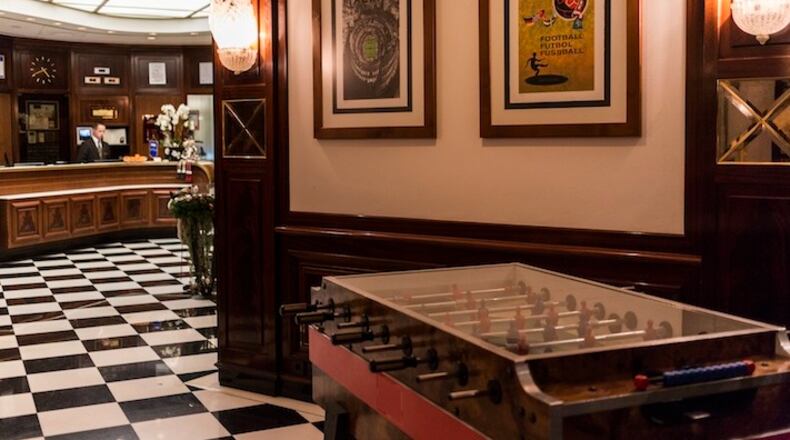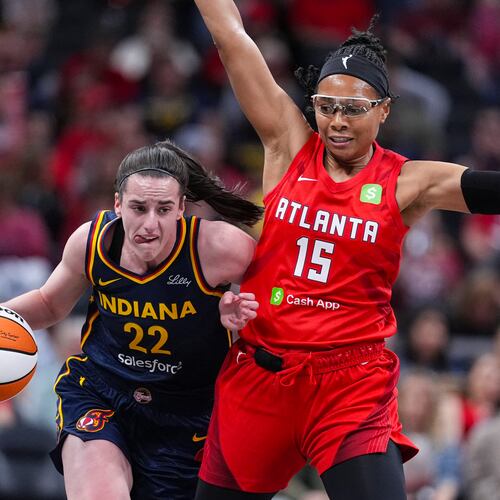Luxury apartments, some with views of the Alps, are available in a new 10-story building here, with leases starting March 1. Tenants’ monthly rent payments — ranging from $3,000 to $8,000 — will go to an unusual landlord: a limited-liability company owned by FIFA, soccer’s global governing body.
The building, in the posh center of Zurich, stands as a purple-tiled emblem of the money gushing into the nonprofit organization at the center of a sweeping corruption case that implicated top officials in bribery and kickback schemes. FIFA has $1.5 billion in cash, and it has decided to get into the residential real estate business.
The building will also house a soccer museum, which is scheduled to open on Sunday, two days after FIFA elects a new president to replace Sepp Blatter, the organization’s longtime leader who stepped down last year and is under criminal investigation in Switzerland.
Some see the investments as sensible for an organization sitting on enormous cash reserves. Others question how relevant they are to FIFA’s mission of regulating and promoting international soccer, and how transparent FIFA is about finances at a time when its integrity is under intense scrutiny.
The building adds further diversity to FIFA’s holdings, which grew to include a four-star hotel in 2014.
“It’s not clear why an organization devoted to running global football would be well positioned to get into hotels or restaurants,” said Stefan Szymanski, a professor of sport management at the University of Michigan. “One might argue whether it’s their responsibility to develop a FIFA-land complex to generate revenue.”
The formal opening of FIFA’s new building — which is centered on soccer exhibits and memorabilia but in addition to apartments also houses a restaurant, a sports bar, office space and a conference center — was delayed. “We laid a bit low because of the turbulence that erupted in May,” said Stefan Jost, chief executive of the FIFA Museum, referring to the indictment of nine soccer officials on charges including money laundering and racketeering.
As it prepares to open the museum, FIFA is in the complicated position of unveiling celebratory retrospectives on world soccer while responding to criminal investigations into its leadership.
As recently as December, United States and Swiss authorities have accused dozens of soccer officials of diverting millions of dollars from the sport into their own pockets; so far, four of them have pleaded guilty. But Jost said the museum — a permanent home for the original World Cup trophy and jerseys from FIFA’s 209 national associations — signals a “rebirth” for the organization.
“It’s not a FIFA temple, nor a Blatter memorial,” he said.
Still, it is hard to dissociate the project from Blatter, who in laying a stone for the building’s foundation three years ago called it as great a day for him personally as for FIFA.
Blatter is still listed as president of the holding company’s board of directors, business records in Switzerland show, and his former top deputy, Jérôme Valcke, recently fired by FIFA and barred from soccer for 12 years, is also listed as a current member of the board.
Jost said that their ties to the company would be cut once FIFA had a new president and secretary general in place.
Chuck Blazer, a former FIFA official from the United States with whom the Justice Department’s case originated, was a board member under an earlier incarnation of the holding company, according to the federal filing.
Under Swiss law, a nonprofit association like FIFA is not required to disclose much about its finances. Details of the museum project — including construction costs and staff salaries — are opaque, as are the operating financials of FIFA’s hospitality holdings, including the hotel across the street from the museum.
“Often nonprofits call to mind UNICEF, or standards of nonprofits under U.S. or Western European law,” said Roger Pielke Jr., a political scientist who has studied sports governance and FIFA. “If you applied those standards, FIFA would come up pretty short.”
FIFA publishes annual financial reports in which it does not itemize revenue or costs from its 11 subsidiaries, including the FIFA museum and the Hotel Ascot. The organization also subleases out space to the upscale Sonnenberg restaurant in Zurich, a spokeswoman said. The restaurant is home to a members-only dining room known as the FIFA Club and run by a friend of Blatter’s.
As a Swiss nonprofit, FIFA pays lighter taxes on proceeds from its main activities, like running the World Cup, according to Lucien W. Valloni, a sports lawyer in Zurich. In 2014, that tournament brought in $4 billion. FIFA is free to engage in unrelated business like selling hotel stays or renting apartments, he said, but it pays full taxes on such income.
Managing such commercial investments in separate holding companies helps protect FIFA from paying full taxes on its principal and most profitable activities, said Timothy Speiss, a tax specialist with EisnerAmper in New York.
Declining to provide specific figures, Jost said the museum would not make as much money as it had cost and would require a subsidy. “FIFA sees this subsidy as a gift to all the football and sports enthusiasts that come to visit,” he said.
Some wonder about the appropriateness of routing cash toward commercial enterprise — especially a potentially money-losing one — over potential grass-roots soccer development. “If a charity was sitting on billions of dollars, you’d be worried about what they were up to,” Szymanski said. “FIFA’s a commercial organization managing the most popular sport in the world, but it’s also a charity.”
Advocating for more transparency, he added, “In some ways, opening the books on these properties would be the least controversial part of what they’re doing.”
According to the leasing site for the museum apartments, roughly a third of the units have been rented. Those not facing the mountains could have a view of FIFA’s own Hotel Ascot across the street, at which FIFA plans to market overnight packages paired with museum visits.
The hotel’s logo — a jockey on horseback — evokes another sport, though FIFA-branded umbrellas sit in one of the restaurants, where flash-fried cubes of sashimi cost $39.
Soccer balls and vintage tournament posters decorate the bar, and a foosball table sits in a corner of the lobby. On a recent night, rooms at the hotel ranged from around $300 to $500.
South America’s soccer organization, Conmebol, also has a hotel, in Asunción, Paraguay, where visiting soccer officials often stay. But in Zurich, rather than staying at the FIFA-owned property, officials have typically favored spending the night at the five-star Baur au Lac, the site of two predawn police raids in connection with the United States case, where rooms can be several times the cost.
That might change with the new museum’s opening, as FIFA conducts more business adjacent to the Hotel Ascot, relocating some employees to offices in the museum building this year.
Jost said that it was too soon to include acknowledgment of criminality in FIFA’s museum exhibits but that it was not out of the question. “We want to show all facets of global football, good and bad,” he said. “But we don’t have the historical distance to talk about it yet.”
Cases are proceeding against two dozen soccer officials, and investigations by both the United States and Switzerland are continuing.
For fans, the FIFA museum may provide a more satisfying visit than the organization’s headquarters on the edge of the city. Even before scandal hit and FIFA closed its grounds to visitors last spring, the 11-acre gated headquarters did not hold much for those who made pilgrimages there. On TripAdvisor, tourists have given it lukewarm reviews.
Jeffrey Harris of Los Angeles visited with his 21-year-old daughter last April. He asked to use the restroom but was told it was not open to the public, said Harris, a counselor at the University of Southern California.
“We asked if there were tours and they said, ‘No, there’s nothing to see,’ ” he said. “It was so metaphorical for FIFA as an organization.”
The new museum will make an effort to cater to tourists, with rotating themes that will extend to food and drink offerings, Jost said. He suggested special vodka cocktails in anticipation of the 2018 World Cup in Russia.
“We want to keep the museum alive,” he said. “It’s fantastic for fans, and it’s fantastic for Zurich tourism.”
About the Author
Keep Reading
The Latest
Featured



